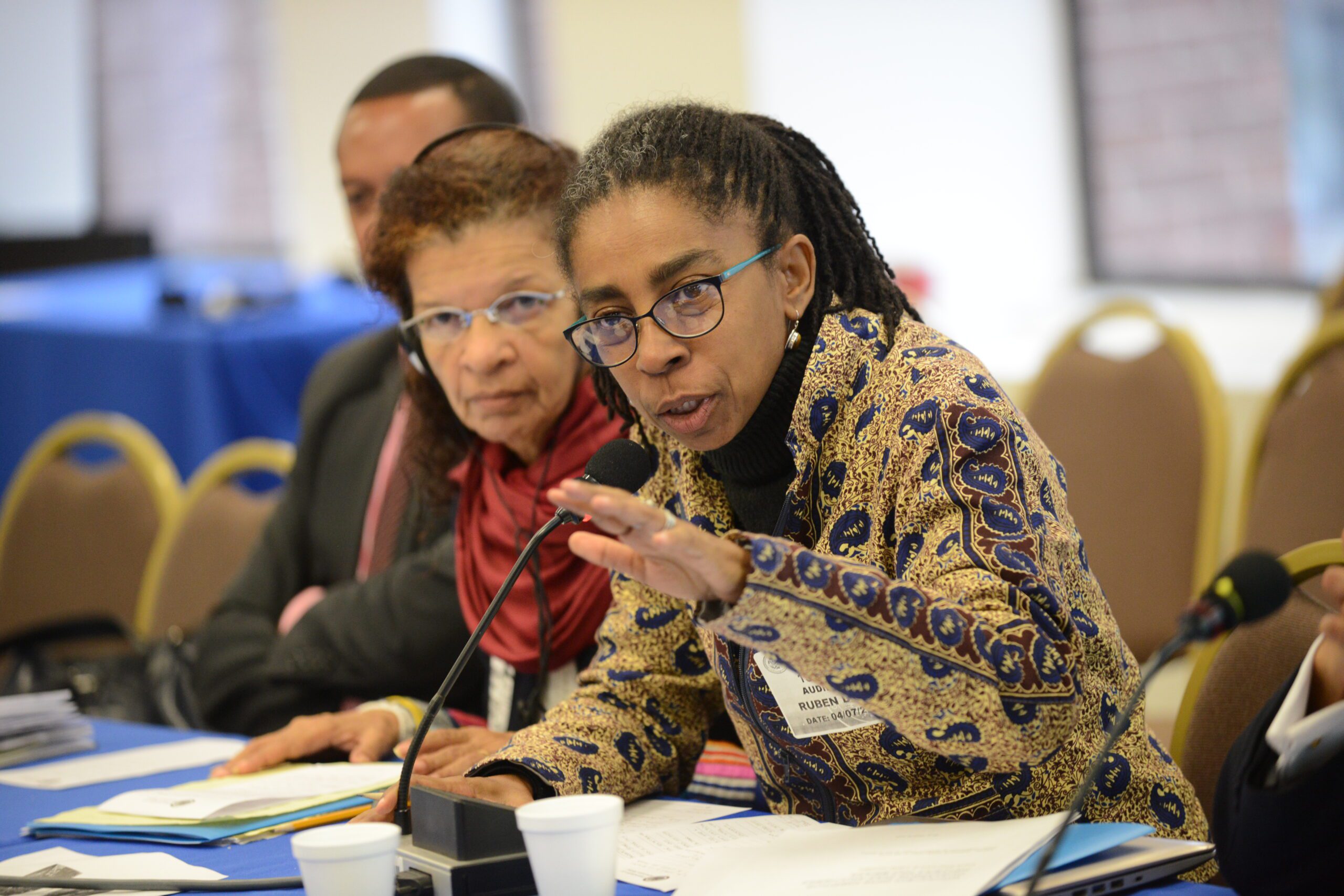Violence Against Black Women in Brazil has Increased: “The Maria de Penha Law Hasn’t Reduced Murders of Black Women”
Photo courtesy of OAS photographer Daniel Cima, licensed under CC BY 2.0. Violence Against Black Women in Brazil has Increased: “The Maria de Penha Law Hasn’t Reduced Murders of Black Women” […]

Photo courtesy of OAS photographer Daniel Cima, licensed under CC BY 2.0.
Violence Against Black Women in Brazil has Increased: “The Maria de Penha Law Hasn’t Reduced Murders of Black Women”
That was the message of Brazilian partners Criola—Black Women’s Organization of Rio de Janeiro, and Geledes—The Brazilian Black Women’s Institute in a public hearing before the Inter-American Commission on Human Rights on April 7, in Washington, D.C. In their presentation before the Commission, Jurema Werneck of Criola, Nilza Iraci and Rodnei Jerico da Silva included statistics demonstrating that while rates of violence against white women in Brazil have decreased, during the same period violence against black women has increased.
“Between 2011 and 2013, sixty-four percent of women murdered in Brazil were black,” Werneck affirmed, citing official statistics. According to figures of the Secretary for Women’s Policy, at least 4,762 women died from gender-based violence in 2013. In other words, 13 women murdered each day, 33.2 percent of whom died at the hands of a partner or spouse.
In a ranking headed by Latin American countries, the 2015 Violence Map produced by the UN placed Brazil fifth in the world for violence against women, with a rate of 4.8 cases per 100,000 women.
One of the most powerful figures cited in the study showed that from 2003-2013 murders of white women in Brazil dropped by 9.8 percent, while the number of black women killed rose from 1,864 per year to 2,875 per year, an increase of 54.2 percent. “The statistics demonstrate that the Maria de Penha Law has not been able to reduce violence against black women,” Werneck said.
In presenting specific cases, the petitioners told stories of violence against black women, be it at the hands of authorities, husbands, partners or strangers. Among the cases cited was that of Veronica Bolina, a transgender black women held in a prison for men since 2015, where after being brutally beaten by police she was forced to dress as a man in a clear act of denigration and in violation of her human rights. In conclusion of their presentation, the petitioners called for the Commission to help the Brazilian government face the structural and institutional racism confronted by black women.
Representatives of the Brazilian state argued that although statistics show that violence has increased against black women, the government has been making an effort to improve the situation of this sector of the population. Margarette May Macaulay, the Commission’s Rapporteur on the Rights of Women, asked several questions about how to guarantee black women’s sexual and reproductive rights, including the right to terminate pregnancy, especially given the Zika virus epidemic. The petitioners expressed the the majority of women victims of the virus are black. According to Werneck, seventy percent of the pregnant women carrying the Zika virus are black.

